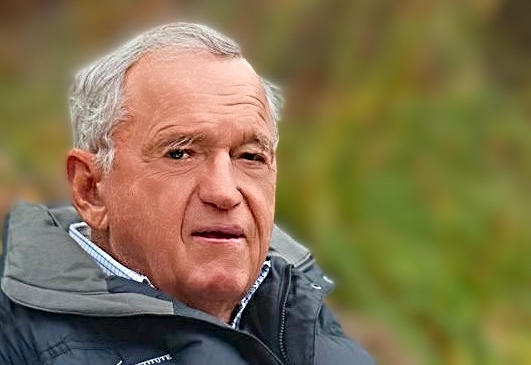$350 million gift to Harvard Bioengineering Institute from Hansjörg Wyss

Harvard University announced that Hansjörg Wyss has made a $350-million gift to support the research of the Wyss Institute for Biologically Inspired Engineering—his fourth: a start-up gift of $125 million in 2008 (then the largest in Harvard history); a second, equal round in 2013; a $131-million boost in 2019; and the current huge installment.
Throughout, the institute has sought to pioneer innovative technologies that emulate natural systems, and to apply them rapidly to human health care and the environment—for example, the recently reported systems and materials that may yield far more energy-efficient, lower-cost air-conditioning.
“Since its founding 13 years ago,” President Lawrence S. Bacow said in a statement in the announcement, “the Wyss Institute has been devoted to breaking down silos within and between academia and industry. That aspiration, expressed passionately and persistently by Hansjörg Wyss, has yielded a unique model of collaborative and cross-disciplinary research, as well as disruptive innovations that are improving and saving lives.”
“We are extraordinarily grateful not only because Hansjörg is one of Harvard’s most generous supporters,” Bacow continued, “but also because he inspires our community with his curiosity, imagination, and vision. They are a constant spur for the institute’s incredibly talented faculty and staff—and a boon to humanity.”
(In fact, so far as is known, Wyss now ranks as the most generous philanthropic supporter in Harvard’s annals. In addition to his support for the institute, totaling nearly three-quarters of a billion dollars, he has backed doctoral research and fellowships at Harvard Business School; the Medical School; and Harvard Art Museums—putting him in a class by himself throughout the University’s history.
The only known prior, individual gifts close to this one in size were the endowment and naming gifts for the engineering and applied sciences and the public health schools—$400 million and $350 million, respectively.
Analogous research gifts include $200 million in support for the Medical School, announced in 2018, and the recently launched Chan Zuckerberg Initiative program for work in natural and artificial intelligence, which will provide $500 million over 15 years to underwrite the work of the new Kempner Institute.)
In the announcement, Wyss said, “I have been tremendously proud to watch the Wyss Institute grow into the remarkable engine for innovation and entrepreneurship that it has become today, and I want to recognize and congratulate the institute’s leadership, entire faculty, and staff for working so tirelessly to realize my initial vision of working together across disciplines to solve some of the greatest challenges that we face as a society. It has been very gratifying to see the numerous advances in science and technology that have been achieved since the institute was founded. I hope others will see what this team has accomplished in such a short time and join me in helping to build this incredible enterprise and expand its impact even further in the years to come.”
As one sign of its maturation and scope, the institute recently signed a lease for its own, purpose-built space in a 14-story building on Brookline Avenue in Boston, with occupancy scheduled for next spring. The 107,000-square-foot Wyss facilities will accommodate laboratories and meeting space for its 375-person staff.
During its 13 years of operation, Wyss Institute core and associate faculty members, staff scientists and engineers, and associated staff members who work on intellectual property licensing have filed for nearly 4,000 patents, executed more than 100 commercial licensing agreements, and participated in or founded 50 startup enterprises, plus numerous industry collaborations. They have also published more than 2,700 scientific articles.
“I have been tremendously proud of the work that we have accomplished at the Wyss Institute since its inception and have been both humbled and honored by Hansjörg Wyss entrusting us with realizing his vision of building a translational institution that never existed before within the walls of academia,” said founding director and core faculty member Don Ingber.
“Mr. Wyss’s generosity will allow us to continue to explore, evolve, and grow in new ways so that we always remain at the forefront, and pave the way for generations to come,” continued Ingber, Ingber, who is Folkman professor of vascular biology at the Medical School and the Hansjörg Wyss professor of bioinspired engineering at Harvard’s Paulson School of Engineering and Applied Sciences.

